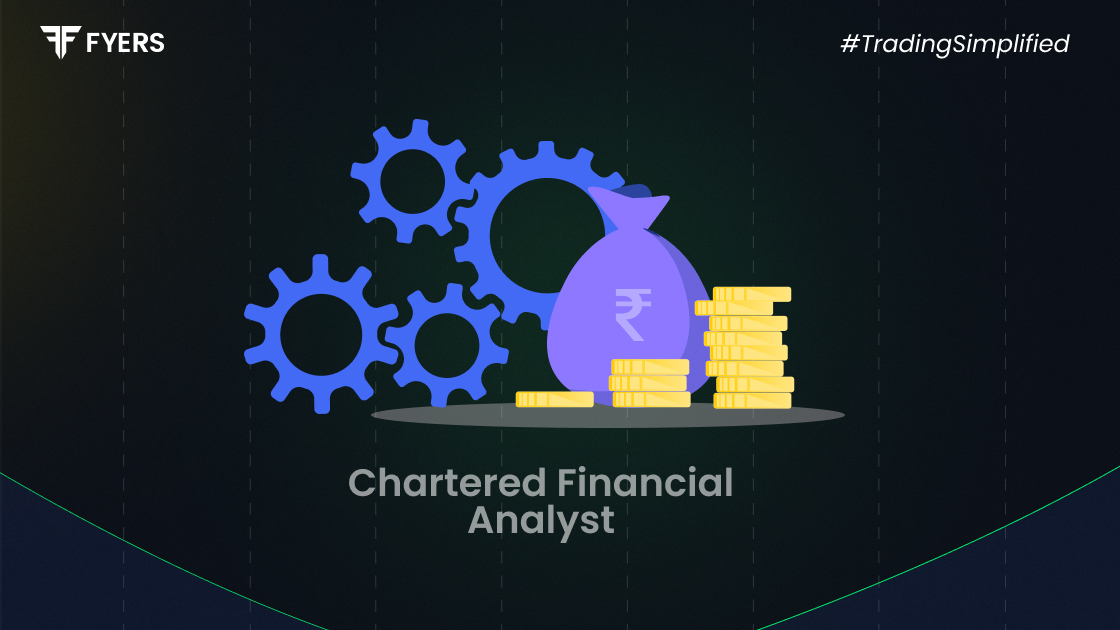

 21 Jun, 2025
21 Jun, 2025
 3 mins read
3 mins read

For anyone interested in building a career in investment management, equity research, or financial analysis, the Chartered Financial Analyst (CFA) designation is one of the most respected credentials worldwide. It’s known for its rigour, in-depth curriculum, and global recognition. In this blog, we’ll cover what is CFA, its eligibility criteria, exam structure, CFA syllabus, and the career prospects it offers.
CFA stands for Chartered Financial Analyst. It is a professional qualification offered by the CFA Institute, USA, that focuses on investment analysis, portfolio management, and ethical standards.
The CFA designation is considered a gold standard in finance. It demonstrates a strong understanding of financial and investment analysis, and it is highly valued by employers across the globe. If you’re wondering how to become a CFA, it starts with enrolling in the CFA program, preparing thoroughly, and clearing all three levels of the CFA exam.
Here are some compelling reasons to consider becoming a CFA charterholder:
Global Recognition: CFA is accepted in over 165 countries.
In-Depth Financial Knowledge: Covers topics such as equity, fixed income, derivatives, and portfolio management.
Career Advancement: Opens doors in investment banking, asset management, consulting, and more.
Professional Credibility: Earning the CFA charter signifies a commitment to ethics and excellence.
Flexible Learning: It’s a self-study programme, so you can prepare while working.
The CFA course details are designed to give you a robust foundation in investment analysis and decision-making, making it a powerful tool for professional growth.
To enrol in the CFA programme, candidates must meet the following CFA eligibility criteria:
Education: You must be in the final year of your undergraduate degree or have completed it.
Work Experience: Alternatively, you can have a combination of 4,000 hours of work experience and/or higher education over a minimum of three years.
Passport: A valid international travel passport is required to register for the exams.
English Proficiency: All study materials and exams are in English, so good language skills are necessary.
These requirements are crucial for anyone exploring how to become a CFA and planning a long-term career in finance.
The CFA exam structure is divided into three levels:
|
Level |
Focus Area |
Exam Format |
|---|---|---|
|
Level I |
Knowledge and comprehension |
Multiple-choice questions |
|
Level II |
Application and analysis |
Item sets (case study-based MCQs) |
|
Level III |
Portfolio management and wealth planning |
Essay-type and item set questions |
Each level is typically offered twice a year, and you must pass one before progressing to the next. The CFA course usually takes 2.5 to 4 years to complete, depending on your pace and background.
The CFA syllabus covers ten core areas of finance:
Ethical and Professional Standards
Quantitative Methods
Economics
Financial Reporting and Analysis
Corporate Finance
Equity Investments
Fixed Income
Derivatives
Alternative Investments
Portfolio Management and Wealth Planning
These topics are divided across the three levels, with increasing complexity. Level I focuses on basic knowledge, Level II on application, and Level III on strategy and portfolio management. Knowing the CFA syllabus helps you plan your study time and focus areas effectively.
Career after CFA offers vast potential across the global financial landscape. CFA charterholders enjoy a wide range of opportunities in the financial sector. Here are some popular roles:
Equity Analyst
Portfolio Manager
Investment Banker
Credit Analyst
Risk Manager
Fund Manager
Wealth Advisor
Companies like Goldman Sachs, JPMorgan Chase, Morgan Stanley, and leading Indian firms such as ICICI, HDFC, and Infosys value CFA professionals for roles in finance, research, and advisory services. Having the Chartered Financial Analyst designation on your résumé can significantly enhance your credibility and open doors globally.
CFA stands for Chartered Financial Analyst, a professional qualification focused on investment and financial analysis.
The CFA exam has three levels – Level I, Level II, and Level III.
Graduates, final-year students, or individuals with 4,000 hours of work/education experience over 3 years are eligible to apply.
The CFA exams are known for their difficulty, requiring extensive preparation and dedication. The global pass rate is generally below 50% for each level.
Calculate your Net P&L after deducting all the charges like Tax, Brokerage, etc.
Find your required margin.
Calculate the average price you paid for a stock and determine your total cost.
Estimate your investment growth. Calculate potential returns on one-time investments.
Forecast your investment returns. Understand potential growth with regular contributions.